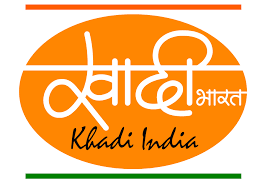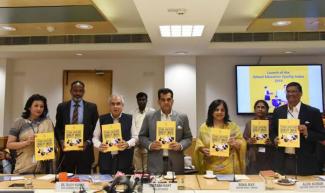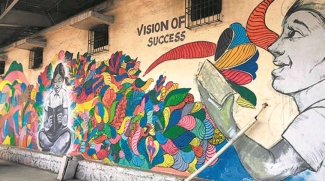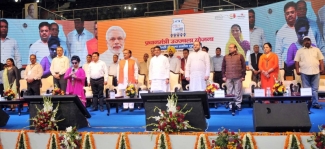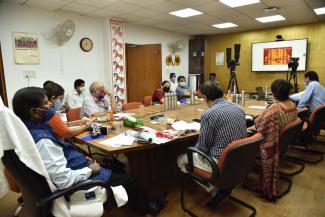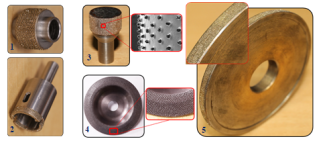
A newly developed technology can now produce new-generation multi-point/single-layer superabrasive tools for advanced grinding applications to meet high productivity and energy-efficient material removal requirements. The tools produced also have enhanced tool life.
Grinding industries have aired their voices for developing advanced superabrasive cBN/diamond tools that meet high productivity and energy-efficient material removal requirements and customization based on local needs.
A research team led by Dr. Amitava Ghosh at IIT Madras has used advanced chemical bonding technology with an application-specific novel formulation of filler material and controlled spacing of grits on the tools by an indigenously developed semi-automatic grit-printing device.
The team recommends application-specific-advanced coatings to develop such new-generation superabrasive tools. The novel formulation offers an excellent blend of strength, wear resistance, and wetting characteristics (ability to spread well in a liquid state with low contact angle on solid superabrasives during brazing). The grit-planting (planting/placing of grits in pre-defined co-ordinate position on grinding wheel's working surface) setup allows a manufacturer to print grit in customised pattern to suit the requirement of an application. The recommended coating enhances the durability of the bond, thus adding life to the developed tools.
In a nutshell, these superabrasive tools can be produced using active brazing technology with remarkably striking attributes of high crystal exposure above bond level. The joint strength and wear-resistant characteristics of bond of these tools are superior to those of their commercial counterparts. These tools can withstand more grinding force, offer significantly higher tool life, and execute load-free grinding of advanced materials with an extremely high material removal rate.
This indigenous tool supported by the Core Research Grant (CRG) of the Science and Engineering Research Board (SERB), a statutory body of the Department of Science and Technology (DST), offers a competitive cost with a superior quality tool, which is also tailor-made as per the needs of industries like aerospace, automobile, mining, and dental surgery.
The technology can produce new-generation tools with versatile geometries. The prototypes of various tools have been developed in the laboratory and are being experimentally test-simulated under industrial conditions. This innovative route of showcasing the novel pathway of manufacturing superabrasive tools has been published in "Journal of Manufacturing Process" recently, and patents filed are under review for approval.
This technology which fits the requirements of Make-in-India National Mission is under lab validation and is near-ready to be taken up by a start-up or any industry for a full-scale launch. The application-specific indigenous formulation of active fillers for joining superabrasives to metal substrates through state-of-the-art active-brazing technology is a critical novelty that may be exploited for large-scale manufacturing industries.
Publication details: https://doi.org/10.1016/j.jmapro.2021.10.043
Video link: https://www.youtube.com/watch?v=siGYHcpK71E
Various new-generation diamond tools developed indigenously:
(1) Wire-bid for rock cutting (2) Core drill for trepanning (3) Internal grinding wheels (4) clipper wheel for off-hand grinding (5) external grinding wheel for deep-slot grinding







